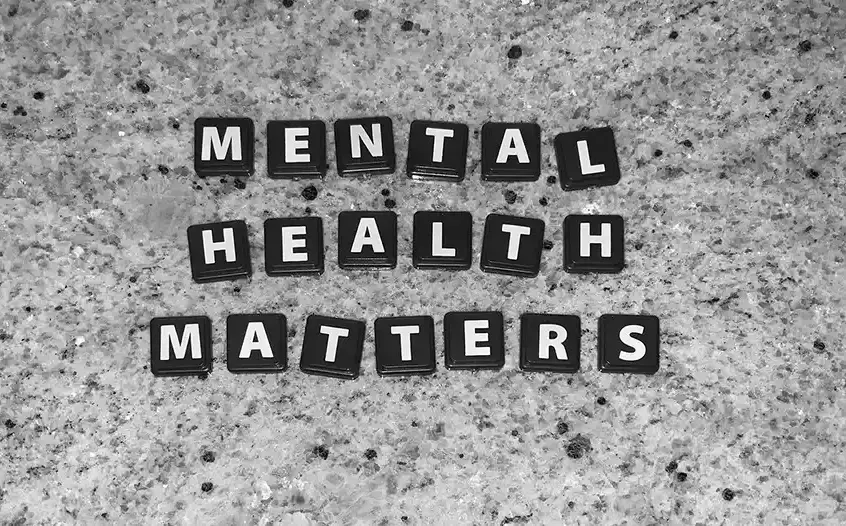
The Five Stages of Mental Health Recovery: Everything You Need to Know
Mental health recovery isn’t the same for everyone. When people eventually seek support for their mental health, it’s likely that they have been experiencing challenges for a while. So overcoming these challenges can often take just as much time as it did for them to develop in the first place.
While each person’s mental health journey is unique, experts have identified five stages of recovery that people may move through.1 In this article, we explore these five stages with the goal being to help you better understand your own healing journey, and the changes you may experience along the way.

What does mental health recovery mean?
Before we delve into the five stages of mental health recovery, it’s important to understand what we mean when we talk about mental health recovery. Mental health recovery doesn’t always mean you’re cured for life. Just like your physical health can fluctuate over your lifetime, your mental health can also go through ups and downs.
As the NDIS puts it, mental health recovery is a unique and personal journey2. For some, the road to recovery may be smoother, with few or minor setbacks. But for others, it can be more challenging with more significant hurdles to overcome and frequent relapses to manage.
What this means for mental health recovery is that it’s not a destination, but a journey. Ultimately, it involves regaining a sense of control over your life, experiencing hope, and finding meaning in various aspects of your life —- in spite of your condition.
Where do the five stages of change come from?
The idea that mental health recovery happens in five stages comes from a theory about behaviour change developed by researchers, James Prochaska and Carlo DiClemente1. This theory, known as the “stages of change” model, was first used to describe the process people go through when changing their health behaviours, for example when they stop smoking or become more active. Today, this model is just as helpful and relevant for understanding the different steps people take on their path to mental health recovery.

What are the five stages of change for mental health recovery?
Below you will find information about the five stages of change for mental health recovery, including what you may experience at each stage. While knowing about these stages can help you understand and navigate your recovery, remember that your journey is unique.
You might not move through all of these stages in order, or even go through all of them. You might skip some, and you might move back and forth between them. No matter what your journey looks like, remember that there is no right or wrong when it comes to your recovery.
Stage 1: The precontemplation stage
At the start of your recovery journey, you might not realise you have a mental health problem. You may feel distressed, but have a hard time making sense of your feelings and experiences. Even if you’re aware that you have a problem, you might try to ignore or downplay your feelings.
While you might feel embarrassed or ashamed about what you’re going through, remember that many people experience mental health challenges at some stage in their lives. Support is available and asking for help is not a sign of weakness — it can be a courageous first step towards recovery.
Stage 2: The contemplation stage
During the second stage of your recovery journey, you’re starting to accept that something is wrong and you may need help. At this stage, it’s normal to envision what life could be like if you made some changes and sought extra support.
You may still feel ambivalent, but you’re probably more open to the idea of treatment at this stage. It can be a good idea to start looking at different support options and weighing the pros and cons of each.
Stage 3: The preparation stage
When you’ve decided to take action and seek help or start treatment, you move into the third stage of recovery: the preparation stage.
At this point in your recovery journey, you’ve committed to the process of change and are ready to start actively working on your mental health. You may feel anxious and excited, recognising that while the journey ahead may be challenging, it will be worth it.
Stage 4: The action stage
The action stage is all about implementing your treatment plan and taking concrete steps towards recovery. It often involves working with a therapist, support group, or other mental health specialists to reach your desired goals for recovery.
At this stage you may have started attending therapy regularly, taking medication, implementing a self-care routine, and making healthy lifestyle changes. It can take time to notice improvements in your mental health, and you may experience some setbacks during this stage. But over time and with persistence, you will probably find that you start to feel much better.
Stage 5: The maintenance stage
Remember earlier we talked about recovery being a unique and personal journey — how it doesn’t always mean that you’re cured for life? Well, because your mental health can improve and get worse again over time, the maintenance stage is an important part of mental health recovery.
Maintenance, when it comes to mental health recovery, is about sustaining positive changes to your mental health in the long-term. To maintain your mental health, it’s important to take care of it just like you do your physical health. This can mean recognising when your mental health is at risk and taking action early, for example, by getting outside support.
Conclusion
Remember, mental health recovery can take time, and maintaining good mental health is a work in progress.
If you have a psychosocial disability, it can be especially challenging to stay mentally well over the long-term. The NDIS understands this and they won’t penalise you for it. Rather, they will assess your case individually and offer you support that works for you and your unique mental health needs.
Goal Coaches recovery coaches can assist you at each stage of your recovery stage! Meet our team and book a chat today!
References:
1. Prochaska, J., & Norcross, J. (2001). Stages of change. Psychotherapy: Theory, Research, Practice, Training, 38(4), 443
2. NDIS Australia. (n.d.). Snapshot 3 – Recovery and the NDIS. NDIS. https://www.ndis.gov.au/understanding/how-ndis-works/mental-health-and-ndis










